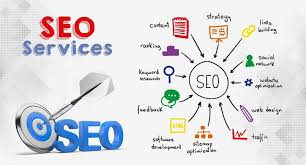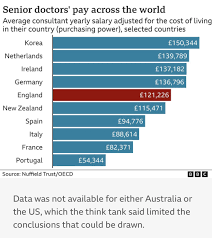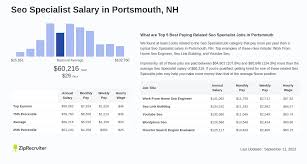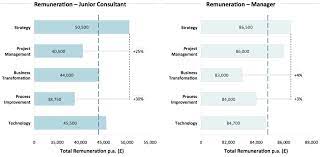Exploring SEO Specialist Salaries in London: A Comprehensive Guide
The Average SEO Specialist Salary in London
Search Engine Optimization (SEO) is a crucial aspect of digital marketing, and businesses in London are constantly seeking skilled professionals to enhance their online presence. As such, the demand for SEO specialists in London is high, leading to competitive salaries for those with the right expertise.
According to recent data, the average salary for an SEO specialist in London ranges from £25,000 to £40,000 per year for entry-level positions. With experience and proven results, senior SEO specialists can earn upwards of £60,000 per year.
Factors Influencing SEO Specialist Salaries
Several factors can influence the salary of an SEO specialist in London. These may include:
- Experience: Experienced SEO specialists with a track record of successful campaigns are likely to command higher salaries.
- Skills: Proficiency in technical SEO, content optimization, link building, and analytics can increase earning potential.
- Industry: Salaries may vary based on the industry in which the SEO specialist works, with sectors such as e-commerce and technology often offering higher pay.
Career Growth Opportunities
As businesses continue to invest in digital marketing strategies, the demand for skilled SEO specialists is expected to grow. This presents ample opportunities for career advancement and increased earning potential for professionals in this field.
SEO specialists who stay updated on industry trends and continuously enhance their skills are likely to excel in their careers and command higher salaries. Continuous learning and professional development can open doors to senior positions such as SEO manager or digital marketing director.
Conclusion
In conclusion, the salary range for an SEO specialist in London reflects the importance of search engine optimization in today’s digital landscape. With competitive salaries and promising career growth opportunities, pursuing a career as an SEO specialist can be rewarding for those passionate about improving online visibility and driving organic traffic for businesses.
Maximising Your Earnings as an SEO Specialist in London: A Guide to Salaries, Skills, and Networking
- Research the average salary range for SEO specialists in London to negotiate effectively.
- Consider gaining additional certifications or qualifications to increase your value as an SEO specialist.
- Stay updated on industry trends and changes in search engine algorithms to remain competitive in the job market.
- Network with other SEO professionals in London to learn about potential job opportunities and salary benchmarks.
- Highlight your specific skills and achievements in SEO when applying for jobs or negotiating a salary increase.
Research the average salary range for SEO specialists in London to negotiate effectively.
To negotiate effectively for a competitive salary as an SEO specialist in London, it is essential to research the average salary range for professionals in this field. Understanding the typical compensation levels can provide valuable insight during negotiations, allowing you to advocate for fair remuneration based on industry standards and your level of expertise. By being well-informed about the prevailing salary trends, you can confidently present your case and secure a favourable compensation package that reflects your skills and contributions as an SEO specialist.
Consider gaining additional certifications or qualifications to increase your value as an SEO specialist.
To enhance your earning potential as an SEO specialist in London, it is advisable to consider acquiring additional certifications or qualifications. By investing in continuous learning and professional development, you can increase your value in the competitive job market. Certifications in areas such as advanced SEO techniques, Google Analytics, or content marketing can demonstrate your expertise and commitment to staying abreast of industry trends. Employers often value candidates who possess relevant certifications, as they indicate a higher level of skill and knowledge in the field of search engine optimization. By expanding your skill set through additional qualifications, you can position yourself for higher-paying opportunities and career advancement as an SEO specialist in London.
Stay updated on industry trends and changes in search engine algorithms to remain competitive in the job market.
To ensure competitiveness in the job market as an SEO specialist in London, it is essential to stay informed about industry trends and keep abreast of changes in search engine algorithms. By staying updated on the latest developments, professionals can adapt their strategies effectively, demonstrate their expertise to potential employers, and position themselves as valuable assets in the ever-evolving field of search engine optimization. Continuous learning and awareness of industry shifts not only enhance job performance but also contribute to long-term career growth and success in the dynamic digital marketing landscape of London.
Network with other SEO professionals in London to learn about potential job opportunities and salary benchmarks.
Networking with other SEO professionals in London is a valuable tip for staying informed about potential job opportunities and understanding salary benchmarks in the industry. By connecting with peers in the field, you can gain insights into the current job market, learn about upcoming opportunities, and gather information on salary ranges for different experience levels. Building a strong network of SEO professionals not only enhances your knowledge but also opens doors to new career prospects and helps you stay competitive in the dynamic landscape of digital marketing.
Highlight your specific skills and achievements in SEO when applying for jobs or negotiating a salary increase.
When seeking a job as an SEO specialist in London or negotiating a salary increase, it is crucial to highlight your specific skills and achievements in the field of search engine optimization. By showcasing your expertise in technical SEO, content optimization, link building, and analytics, you demonstrate your value to potential employers or current employers. Emphasizing tangible results from past campaigns, such as increased website traffic, higher search engine rankings, and improved conversion rates, can further strengthen your position and justify a competitive salary that reflects your contributions and capabilities in the ever-evolving realm of digital marketing.












